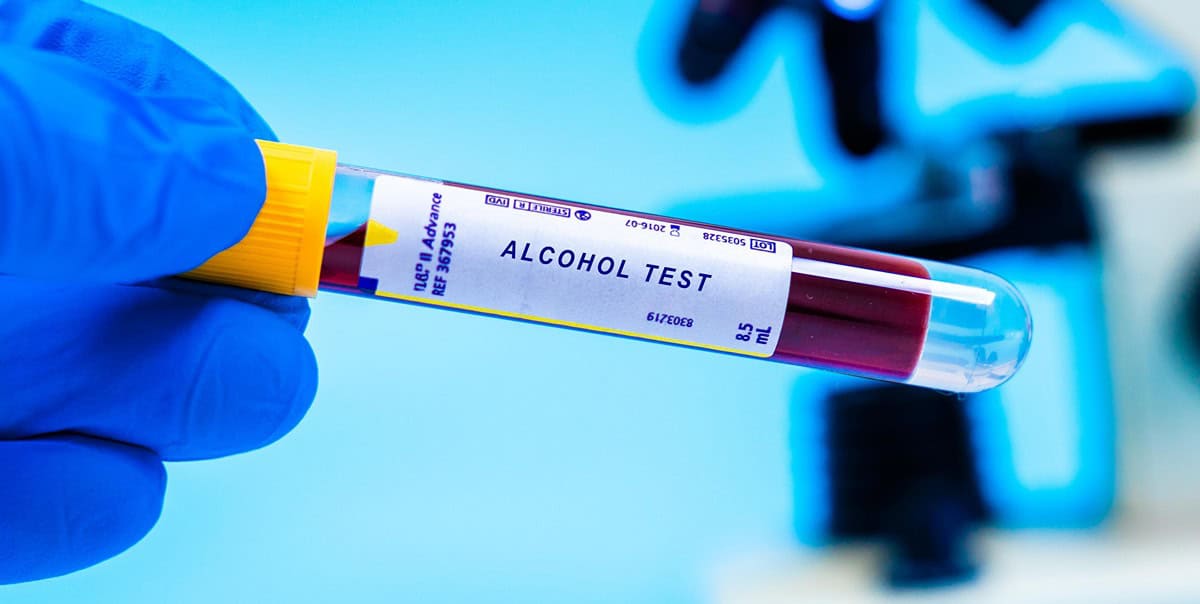In the state of Arizona, it is illegal to have a blood alcohol concentration of 0.08 or higher while operating a boat. This law applies to individuals who have consumed alcohol either before or while operating a watercraft on the lakes in Arizona.
Field sobriety tests are commonly used by law enforcement officers to determine if a boater is impaired to the slightest degree.
These tests, which are conducted on land or on a stationary boat, help officers assess a person’s coordination, balance, and cognitive abilities. Failure to pass a field sobriety test can result in a boating DUI charge.
This article will cover the following topics:
- Arizona OUI Laws
- What are the Penalties of an OUI in Arizona
- Can I Get an OUI On a Jet-Ski?
- How are Field Sobriety Tests Performed For an OUI
- Should I Consent to a Boating Field Sobriety Test
- Boating DUI Checkpoints
- Get Help From a OUI Defense Attorney

Arizona OUI Laws
In Arizona, operating a watercraft under the influence of alcohol or drugs constitutes a serious violation known as Operating Under the Influence (OUI). Governed by Arizona Revised Statutes (ARS) 5-395 and related sections.
Definition and Legal Thresholds
An OUI charge can be brought against individuals who are in actual physical control of a watercraft while impaired ‘to the slightest degree’ by:
- Intoxicating liquor,
- Any drug,
- A vapor releasing substance containing a toxic substance,
- Any combination of the above substances.
Specifically, ARS 5-395 details the impairment standards and the conditions under which a person is considered to be under the influence. This includes a blood alcohol concentration (BAC) of 0.08% or higher, which is the standard threshold for legal impairment.
Extreme and Super Extreme OUI
The law takes a more harsh approach with higher BAC levels:
- Extreme OUI: Defined under ARS 5-395.01, this charge applies if the operator’s BAC is between 0.15% and less than 0.20%.
- Super Extreme OUI: This level is reached when the BAC is 0.20% or higher, bringing about more severe penalties.
Aggravated OUI
Aggravated OUI is a more serious offense and is addressed under ARS 5-397. This charge may be applicable in situations where the operator commits an OUI:
- While their boating or driving privileges are suspended, canceled, revoked, or refused,
- If the operator has two prior convictions for OUI, DUI, or equivalent laws of another state within the past 84 months,
- When an OUI offense is committed while a person under 15 years old is present in the watercraft.
What are the Penalties of an OUI in Arizona
Operating Under the Influence (OUI) in Arizona is a significant legal issue, with penalties that increase depending on the severity of the violation and any prior convictions.
The state of Arizona aims to discourage boating under the influence of intoxicants by imposing penalties that may include fines, jail time, and additional legal consequences.
Standard OUI Penalties
For a first-time OUI offense where the individual’s blood alcohol concentration (BAC) is above the legal limit of 0.08% but below 0.15%, the penalties may include:
- Fines: Monetary penalties can exceed $1,200 including court costs.
- Jail Time: Mandatory minimum jail time of 24 hours, but not more than ten days.
- Probation: Possible probation for up to five years.
- Alcohol Education: Enrollment in alcohol education or treatment programs may be required.
- Community Service: Judges may impose community service requirements.
Penalties for Extreme and Super Extreme OUI
If the BAC is significantly higher, the penalties increase substantially:
- Extreme OUI (BAC of 0.15 to 0.199%):
- At least 30 days of jail time,
- Fines and assessments potentially exceeding $2,500,
- Mandatory alcohol screening and education.
- Super Extreme OUI (BAC of 0.20% and above):
- Minimum jail time of 45 days,
- Higher fines likely totaling over $3,200,
- Increased scrutiny under probation,
- Installation of an ignition interlock device on all vehicles operated by the offender.
Aggravated OUI Penalties
Aggravated OUI, which involves more severe circumstances such as a third OUI offense within 84 months, operating a boat while under a license suspension, or having a minor under the age of 15 on the boat, incurs more severe penalties:
- Jail Time: Depending on the number of prior offenses and specific circumstances, jail time could extend to months or even years in prison.
- Fines: Substantial fines that can amount to several thousand dollars.
- Revocation of Boating Privileges: Long-term suspension or permanent revocation of boating licenses.
- Ignition Interlock Device: Required installation on vehicles, possibly including special conditions for watercraft.
Long-Term Consequences
Beyond the immediate legal penalties, an OUI conviction can have extensive long-term effects:
- Criminal Record: A permanent criminal record can impact future employment opportunities, especially in jobs requiring driving or operating heavy machinery.
- Insurance Premiums: Significant increases in insurance costs, including boat insurance premiums.
- Social and Professional Impact: Stigma and potential loss of professional licenses or certifications.
Legal representation is highly advised for anyone facing these charges, as a specialized attorney can provide guidance through the legal system and potentially mitigate the penalties faced.

Can I Get an OUI On a Jet-Ski?
Yes, it is entirely possible to receive an Operating Under the Influence (OUI) charge while operating a jet-ski in Arizona.
Arizona law treats jet-skis and other personal watercraft the same as any other motorized watercraft when it comes to OUIs.
The same legal standards apply, and the potential consequences are just as severe.
How are Field Sobriety Tests Performed For an OUI
Field Sobriety Tests (FSTs) are tools used by law enforcement to determine impairment in boating DUI investigations. These tests were originally developed through research sponsored by the National Highway Traffic Safety Administration (NHTSA) to aid officers in roadside DUI situations.
However, their application in boating DUI scenarios requires special considerations due to the unique environment.
Overview of Field Sobriety Tests
The primary tests include:
- Horizontal Gaze Nystagmus (HGN) Test: This test evaluates the eye’s ability to follow a moving object smoothly. Involuntary jerking of the eyes, exacerbated by alcohol consumption, can indicate impairment. The HGN test is often seen as the most reliable test and focuses on neurological impairment that may be subtle.
- Walk-and-Turn Test: Designed to assess an individual’s ability to perform tasks requiring attention division, this test involves walking nine steps heel-to-toe along a straight line, turning on one foot, and returning in the same manner. It tests the ability to maintain balance, remember instructions, and execute the turns accurately.
- One-Leg Stand Test: This test requires the subject to stand with one foot approximately six inches off the ground and count aloud by thousands until instructed to stop. It evaluates balance, focus, and the ability to perform physical and mental tasks simultaneously.
Other non-standardized tests that may be employed include:
- Finger-to-Nose Test: The individual must touch their nose with the tip of their index finger while their eyes are closed, accurately and alternately with each hand.
- Rhomberg Modified Test: This is a neurological test where the suspect must estimate the passage of 30 seconds in their head with eyes closed and head tilted back, which assesses internal clock functions and balance.
Challenges Specific to Boating OUI
Conducting these tests on a boat presents significant challenges:
- Environmental Conditions: The tests are ideally performed on stable, flat surfaces. Boats inherently lack these conditions; even when docked, the slight movements can impact an individual’s balance and performance on sobriety tests.
- Safety Concerns: Performing physical tasks like the Walk-and-Turn or One-Leg Stand on a boat increases the risk of injury due to the unstable environment.
In conclusion, while Field Sobriety Tests are an important part of DUI investigations, their application in boating DUI cases must be carefully considered. The environmental factors inherent to boating significantly affect the accuracy of these tests, which can impact both the prosecution and defense strategies in an OUI case.
Should I Consent to a Boating Field Sobriety Test
Deciding whether to consent to a boating field sobriety test in Arizona involves careful consideration due to the significant legal and practical implications.
These tests, which include the Horizontal Gaze Nystagmus (HGN), Walk-and-Turn, and One-Leg Stand, are designed to assess impairment. However, the aquatic environment introduces variables like boat movement and water currents that can unfairly influence test outcomes, potentially leading to false positives.
Legally, you are not required to consent to these tests.
While refusal might draw increased scrutiny or even lead to detention, it prevents potentially unreliable results from being used against you in court.
In Arizona, refusing a field sobriety test does not carry the same immediate penalties as refusing a breathalyzer, such as automatic license suspension, but it can be presented in court as indicative of guilt. Given the complexities of administering accurate tests on water, such a refusal can often be justified legally. If environmental or personal physical conditions could negatively impact test performance, refusing may be advisable.

Boating DUI Checkpoints?
In Arizona, law enforcement agencies have the authority to set up boating DUI checkpoints, similar to roadside sobriety checkpoints, to combat and deter Operating Under the Influence (OUI) offenses on waterways. These checkpoints are designed to systematically check boaters for signs of intoxication and are legally upheld under guidelines that ensure they are conducted fairly.
For instance, agencies must use a neutral formula to select which boats to stop, such as every third boat, and the locations and times of these checkpoints must be publicly announced in advance to maximize their preventive impact while respecting boater privacy.
Boating DUI checkpoints are typically found in high-traffic and popular recreational areas
Such as Lake Havasu and Lake Pleasant, especially during peak boating seasons like holidays and weekends. The effectiveness of these checkpoints is debated, but the rationale is that they serve as a strong deterrent against boating under the influence, thereby increasing safety on the water.
Challenges in logistics and environment, such as variable water currents and the expansive areas to monitor, do pose issues in enforcement efficacy and the visibility of impairment signs compared to road sobriety tests.
Legally, while boaters can be stopped and checked for compliance with boating safety regulations, they maintain the right to refuse field sobriety tests and to not self-incriminate.
Get Help From a OUI Defense Attorney

For detailed assistance, visit Arja Shah Law or contact her office directly at (602) 560-7408.











